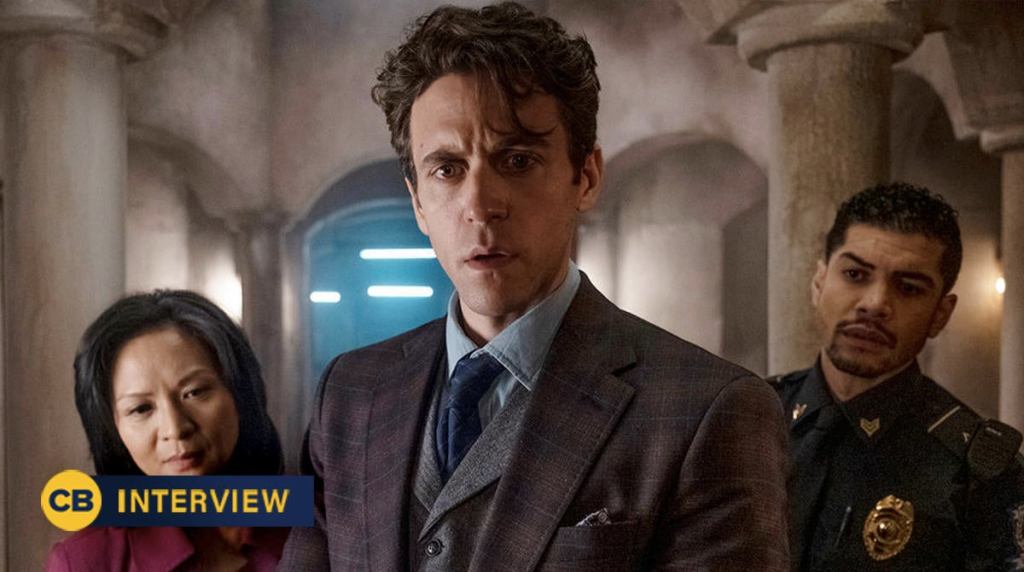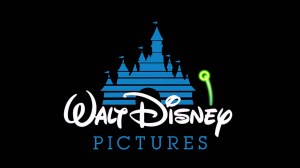Author Dan Brown has been delivering fans complex conspiracies for years with the help of his character Robert Langdon, an unlikely hero whose knowledge has uncovered a number of impressive and deadly conspiracies throughout history. The character was previously brought to life for a trilogy of films, which saw Tom Hanks taking on the character, but with the upcoming Peacock series Dan Brown’s The Lost Symbol, actor Ashley Zukerman steps into the shoes of the figure for an all-new interpretation that paints Langdon in a fresh light. Dan Brown’s The Lost Symbol premieres on Peacock on Thursday, September 16th.
Videos by ComicBook.com
Based on Dan Brown’s international bestselling thriller The Lost Symbol, the series follows the early adventures of young Harvard symbologist Robert Langdon, who must solve a series of deadly puzzles to https://comicbook.com/news/da-vinci-code-lost-symbol-prequel-trailer-peacock/.
ComicBook.com caught up with Zukerman to talk his take on the character, the enlightening experience of the production, and what the future might hold for Langdon.

ComicBook.com: When it came to playing Robert Langdon, who has been in multiple books and appeared in movies starring Tom Hanks, what was your connection to that material before getting involved in this project?
Ashley Zukerman: I hadn’t read any of the books and I auditioned just because of the pilot script alone, which I thought was brilliant. I already told Dan Brown this. He already knows that I hadn’t read the books. Luckily, it wasn’t, “I think I read one and then decided that wasn’t for me.” I hadn’t read any of them, so we’re fine.
But then, that was just very lucky because after being cast, I got to read, I had 3,000 pages about my character, which is just incredibly rare and, not just my character, but what my character will become. So I could look for clues and I didn’t have to be tied to that character, but I could more just look at who that person … About why that person became that person. I could look for little behaviors, that there’s a loneliness to him, perhaps, or a distance he creates with others, or difficulty he has with feeling and his knowledge seems to trap him more than free him. Those are all interesting ideas that I could explore in a younger version of that person.
Speaking to that, there being an established character that you could then go back and discover since there were these movies, major blockbuster movies that came out, and you obviously are playing a slightly different version. You’re younger, but it’s contemporary, so it feels like a multi-verse, if you will. It’s a different thread. Did you actively avoid seeing what Tom Hanks did with the character or did you even watch those movies?
It’s something that, I think just from very early on knew that, by every metric, that should be something that weighs heavy, that people have such a love for that character, either in the films or the books. But I think it actually ended up giving me a freedom. I took the approach that we were leaning on their love for that character and that, actually, I could do something to explain that person. That just allowed me a distance and a freedom to both do my own thing, and also to bring in their love of that person that they do already appreciate.
That was my approach and, whether that was by design to subvert any nerves or not, it seemed to work. Then once we got into the actual work of it, the scripts are just so occupying that nothing else seemed to matter. They were confounding enough. Where the story goes means that I couldn’t possibly tie myself to any other narrative. It wouldn’t fit. Everything that happens in our story is just occupying enough.
Through watching the first few episodes, the tone of the series, the look of the series, and maybe it’s because Eddie Izzard is involved in both of these series, but I got very much a Hannibal TV series vibe, where it’s a re-invention and you’re not ignoring what came before it, but you’re really establishing that this is a new thing. This is a different take that doesn’t try and replicate what came before it. I couldn’t help but wonder, looking forward with this series, sure, it’s called “The Lost Symbol,” but is it too early that there have been talks of seeing your Robert Langdon in Season 2, Season 3, doing The Da Vinci Code, doing Angels and Demons, or is it still just too early?
I think those are questions that people are trying to answer already and we’re very lucky that they’re already trying to answer it, even though we haven’t aired yet. I think that we’re just lucky that, for whatever reason, the third book hadn’t been done as a film anyway because it just serves as an origin, as a jumping-off point so well, it’s just such a personal story to him.
It’s about a family that defines him. It’s about a relationship that defines him. So it means that, as a series, we get to launch him really well and we get to put him very quickly … He doesn’t have to just jump into an esoteric situation that he has to work to feel something towards. He feels a lot right from the beginning just because of the circumstances and that challenges him a lot, and then we get to see a lot. I think, from there, also the fact is that it’s called “The Lost Symbol” and “The Lost Symbol” refers to this idea of, it’s like “The Philosopher’s Stone,” in a way, that it’s the symbol that can spin anything into gold, or that could give people the answers to a greater life, or to change themselves to become better. I think whatever other stories we then will go on to, could be the Da Vinci Code, could be Angels and Demons, could be Origin.
Either way, I think we hang on to that idea that it’s humanity’s search for something better. I think that’s going to be our guiding light no matter what, and that’s a hunch more than anything. It’s something that we don’t really know.
What is so entertaining about Robert Langdon, and about the stories being told with the character, is that everything means something, and your character really gets the opportunity to teach not just the audience, but other characters in any given scene. It’s always, “Oh, well, you’ll notice with that severed hand, you’ll find this tattoo, which means this and this,” and everyone’s getting a history lesson. So when it comes to having played Robert Langdon, what did playing the character teach you? Whether it be professionally, or personally, what did you really take away from the experience?
I think one of the draws and, maybe it’s something that they saw in me anyway and why I was chosen was that, I think in me, I do have this genuine conflict between knowledge and feeling. I think that that is something I could explore in him that, obviously, I don’t have the knowledge that he has, but I think that I do share something with him, that there’s a gap between thinking and feeling, that there are more nodes I have to go through to connect with feeling an instinct than I have with thinking.
And that’s, I think, something that’s in him as well. And it was a very interesting approach to take in, just investigating this idea that, we’re different, what arrests him in that way? Why is he so much more comfortable in a conversation, in an argument, than he is in expressing himself or connecting interpersonally? Have I learned anything is so interesting, but it’s like, it’s definitely something I get to be in communication about with him, with myself, every day.
Earlier this year, fans also saw you in another adaptation of books with the Fear Street trilogy on Netflix. We saw your character meet their demise in those films, but especially now that it’s out in the world, you saw fans connect with it so strongly and absolutely love it, which I don’t think is an understatement. Has there been any plan or hope that maybe we haven’t seen the last of your family and that maybe there could be another Fear Street for you on the horizon, or do you think it’s just been a retroactive, “We did three movies. We’ll let someone else be the focus of a different three movies,”?
I think I would be very surprised if there was a continuation with my specific connection to those films. I think (director) Leigh (Janiak) planned for something very specific, I know that that story of the three films, and I think it’s probably actually important that Nick Goode is no longer with us. I think that message was very clear that, I think to bring him back … Leigh’s brilliant. Kori (Adelson), who produced the films, is brilliant. There’s no point in ever saying “no” because I think the door that Leigh opened was one that these films might not follow any rules, so who knows what might come back? But, in terms of having another story where we delve into the “why” of Nick Goode … I don’t think anyone needs that.
Dan Brown’s The Lost Symbol premieres on Peacock on Thursday, September 16th.
This interview has been edited for length and clarity. You can contact Patrick Cavanaugh directly on Twitter.








